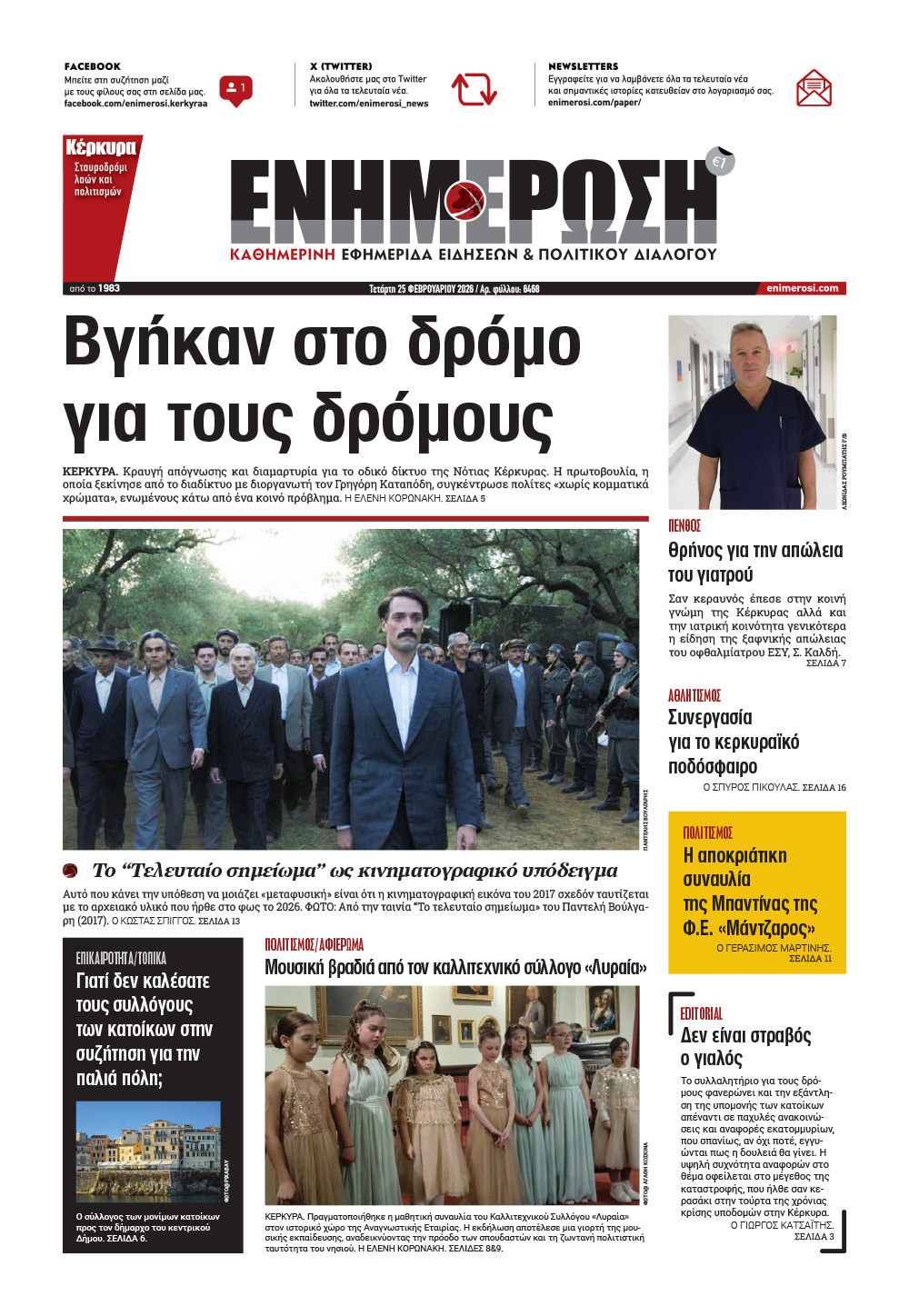Ionian University team wins award for coronavirus research

Ionian University
23 Jun 2020
/ 11:42
CORFU. Texas Medical Center gave an award to the Bioinformatics and Human Electrophysiology Lab (BIHELab) from the Ionian University Informatics Department.
BIHELab received the award for its coronavirus pandemic research, which was presented online to members of the Texas Medical Center research community on Friday 19 June.
Hope Biosciences presented the award to the team leader - head of the Informatics Department and director of BIHELab at the Ionian University - Professor Panayiotis Vlammos.
Prof. Vlammos and the team conducted research into SaRS-COV2 biomarkers in an effort to determine those that create greater vulnerability in populations that are going to get sick and have a similar epidemiological profile.
The research team included faculty members and researchers from the BIHELab as well as other departments. These included Giorgos Mantellos (app development), Aristidis Vrachatis (data analysis), Themistocles Exarchos (system support), Panayiotis Kourouthanasis (systems for quantifying infection risks), Vassilis Kariotis (Database management), Christophoros Dandoyian (platform security), Dimitris Vlachakis (Bioinformatics techniques to identify new biomarkers), Maria Gonidi (doctor-cytologist, verification of new biomarkers) and Marianna Kasti (doctor, identification of new biomarkers).
Professor Vlammos told the Athens-Macedonia News Agency, "The multi-member BIHELab research team developed innovative bioinformatics computer methods in digital clinical data in order to identify biomarkers determining risk factors which can be categorised and to predict populations that are vulnerable and have a similar epidemiological profile. The biomarkers and risk factors that were identified as playing a significant role in members of vulnerable groups that were infected with COVID-19 were used to develop models and corresponding apps to support decision-making in the identification of serious consequences for the health of vulnerable groups."
“The research of the Laboratory of Bioinformatics and Human Electrophysiology continues and aims to analyze the mechanism of the spread of the virus in the human body, by detecting proteins that could be targets of drugs,” Professor Panagiotis Vlamos said.
Source: AMNA
Hope Biosciences presented the award to the team leader - head of the Informatics Department and director of BIHELab at the Ionian University - Professor Panayiotis Vlammos.
Prof. Vlammos and the team conducted research into SaRS-COV2 biomarkers in an effort to determine those that create greater vulnerability in populations that are going to get sick and have a similar epidemiological profile.
The research team included faculty members and researchers from the BIHELab as well as other departments. These included Giorgos Mantellos (app development), Aristidis Vrachatis (data analysis), Themistocles Exarchos (system support), Panayiotis Kourouthanasis (systems for quantifying infection risks), Vassilis Kariotis (Database management), Christophoros Dandoyian (platform security), Dimitris Vlachakis (Bioinformatics techniques to identify new biomarkers), Maria Gonidi (doctor-cytologist, verification of new biomarkers) and Marianna Kasti (doctor, identification of new biomarkers).
Professor Vlammos told the Athens-Macedonia News Agency, "The multi-member BIHELab research team developed innovative bioinformatics computer methods in digital clinical data in order to identify biomarkers determining risk factors which can be categorised and to predict populations that are vulnerable and have a similar epidemiological profile. The biomarkers and risk factors that were identified as playing a significant role in members of vulnerable groups that were infected with COVID-19 were used to develop models and corresponding apps to support decision-making in the identification of serious consequences for the health of vulnerable groups."
“The research of the Laboratory of Bioinformatics and Human Electrophysiology continues and aims to analyze the mechanism of the spread of the virus in the human body, by detecting proteins that could be targets of drugs,” Professor Panagiotis Vlamos said.
Source: AMNA












